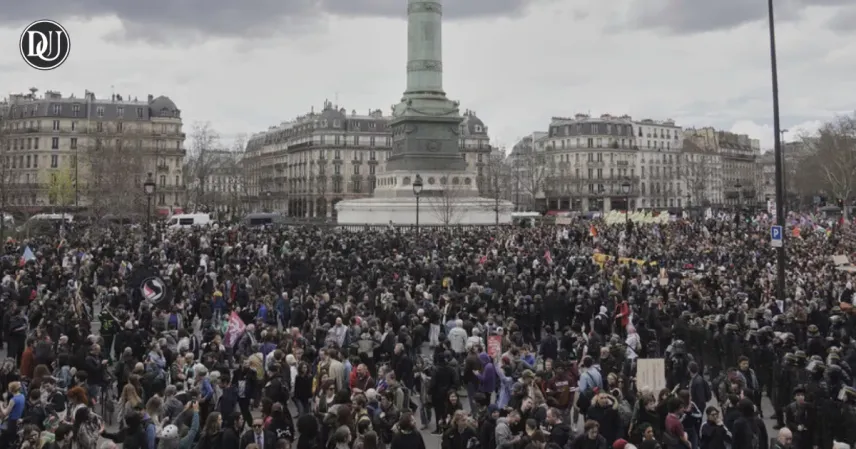Unprecedented Global Participation in May Day Protests
On May Day 2025, streets across the world came alive with chants for justice, workers' rights, and economic fairness. Tens of thousands gathered in protest, making this year's May Day one of the most politically charged in recent memory. The global outcry was fueled by widespread dissatisfaction with U.S. President Donald Trump's economic policies and the perceived political influence of billionaire Elon Musk.
The 50501 Movement: May Day’s New American Identity
In the United States, May Day took on a new form through the 50501 movement—representing 50 protests in 50 states with one unified message. Originally born on online platforms like Reddit, the movement quickly grew into a powerful grassroots force. More than 1,000 rallies were held across major cities and small towns alike, using May Day as a symbol of resistance against rising inequality, corporate dominance, and threats to labor rights.
Demonstrators carried placards calling for the protection of unions, fair wages, and transparency in governance. In cities like Los Angeles, New York, and Atlanta, May Day protestors specifically denounced the administration’s proposed "Project 2025" labor reforms, which many believe would undermine decades of worker protections.
Global Solidarity on May Day
May Day was not just an American story. Across Europe, Asia, and Latin America, workers and activists joined the wave of demonstrations. In Paris, union leaders decried the "Trumpization" of global policy, while in Berlin and Rome, massive crowds marched to uphold labor values. From Tokyo to Jakarta, May Day protests highlighted the universal demand for fair employment practices and dignified working conditions.
In Indonesia, more than 200,000 workers took to the streets, using May Day to demand better labor laws, wage equality, and job security. Similar scenes unfolded in Seoul and Manila, reinforcing the global importance of May Day as a rallying cry for the working class.
Political Reactions and Prominent Supporters
Political leaders across the spectrum joined the May Day demonstrations, signaling rising momentum for labor-centric policy reform. In Philadelphia, Senator Bernie Sanders addressed thousands, warning against the unchecked rise of corporate power. Former Vice President Kamala Harris, speaking at a separate May Day event, criticized Trump’s tariff policies and emphasized the day’s importance in shaping future economic dialogue.
What May Day 2025 Means for the Future
This year’s May Day served not only as a protest but as a global referendum on inequality and labor rights. The unprecedented participation showed that workers, from all walks of life, are demanding change. As the 50501 movement continues to grow, May Day could transform from an annual observance into a sustained political force.
May Day 2025 reminded the world that the spirit of collective action is far from dead. In fact, it may be more powerful than ever. Whether through policy change, political reform, or grassroots activism, May Day is once again a global call for justice, equality, and economic fairness.










